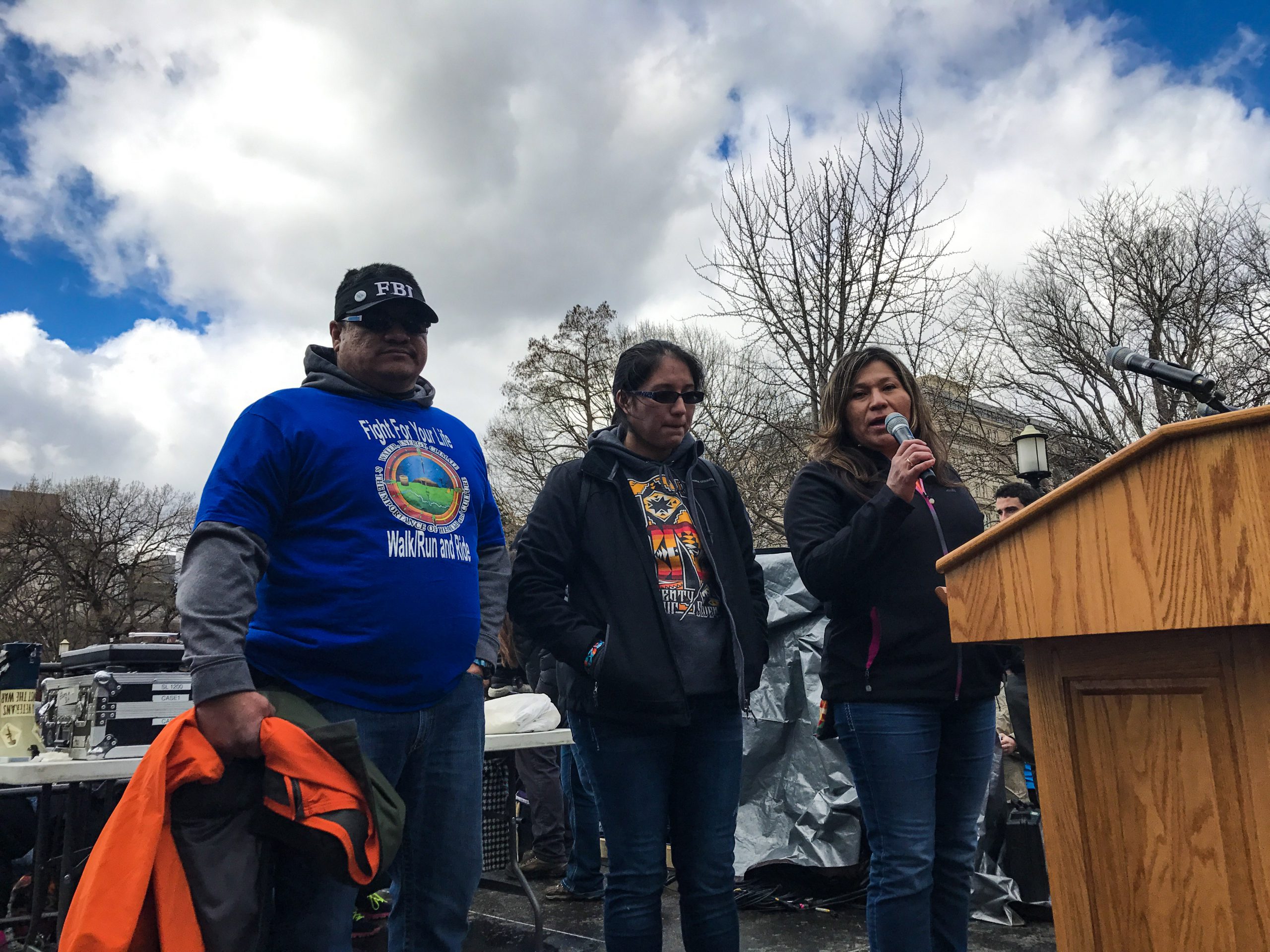Indianz.Com > News > Lisa DeVille: Infrastructure bill weakens environmental protections on tribal lands

Infrastructure bill weakens environmental protections on tribal lands
Friday, August 27, 2021
There has been a lot of discussion surrounding the infrastructure bill [H.R.3684] that is going through Congress. The bill has a lot of good things in it that will benefit American infrastructure, but with the good there is also bad.
Snuck into the bill are provisions that weaken the National Environmental Policy Act (NEPA). NEPA is the most important law providing safeguards for indigenous communities like Fort Berthold in North Dakota.
NEPA requires more involvement of federal agencies for major projects on trust land. NEPA also directs federal agencies to assess potential environmental effects of proposed actions significantly affecting the environment, human and otherwise and to inform the public about these assessments, sometimes through an environmental impact statement. This is important for all projects but particularly for oil and gas development on tribal lands like my home in Mandaree.

Lisa DeVille, an environmental activist, is a citizen of the Mandan, Hidatsa and Arikara Nation. She is a charter member of Fort Berthold POWER, a group formed to protect the land, water and air on the Fort Berthold Reservation, her home community. She is also a member of the Dakota Resource Council, whose mission is to promote sustainable use of North Dakota’s natural resources and agriculture. She resides on her reservation in Mandaree.
Search
Filed Under
Tags
More Headlines
Native America Calling: Mental health experts point to personal connections to maintain winter mental health
Native America Calling: Tribes ponder blood quantum alternative
Defense bill snubs Indian Country in favor of Lumbee federal recognition
NAFOA: 5 Things You Need to Know this Week (December 8, 2025)
Chuck Hoskin: Cherokee Nation benefits from extension of health care credits
Native America Calling: Tribal museums reflect on tumultuous year, chart their next steps
Press Release: National Museum of the American Indian hosts Native art market
AUDIO: Sea Lion Predation in the Pacific Northwest
Native America Calling: Tribal colleges see an uncertain federal funding road ahead
Native America Calling: Short films taking on big stories
Native America Calling: Advocates push back against new obstacles to Missing and Murdered Indigenous Relatives momentum
Native America Calling: For all its promise, AI is a potential threat to culture
NAFOA: 5 Things You Need to Know this Week (November 24, 2025)
Chuck Hoskin: Cherokee Nation invests in rural transportation
Native America Calling: Native candidates make strides in local elections
More Headlines
Native America Calling: Tribes ponder blood quantum alternative
Defense bill snubs Indian Country in favor of Lumbee federal recognition
NAFOA: 5 Things You Need to Know this Week (December 8, 2025)
Chuck Hoskin: Cherokee Nation benefits from extension of health care credits
Native America Calling: Tribal museums reflect on tumultuous year, chart their next steps
Press Release: National Museum of the American Indian hosts Native art market
AUDIO: Sea Lion Predation in the Pacific Northwest
Native America Calling: Tribal colleges see an uncertain federal funding road ahead
Native America Calling: Short films taking on big stories
Native America Calling: Advocates push back against new obstacles to Missing and Murdered Indigenous Relatives momentum
Native America Calling: For all its promise, AI is a potential threat to culture
NAFOA: 5 Things You Need to Know this Week (November 24, 2025)
Chuck Hoskin: Cherokee Nation invests in rural transportation
Native America Calling: Native candidates make strides in local elections
More Headlines